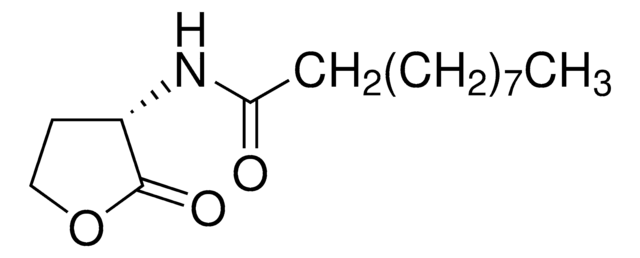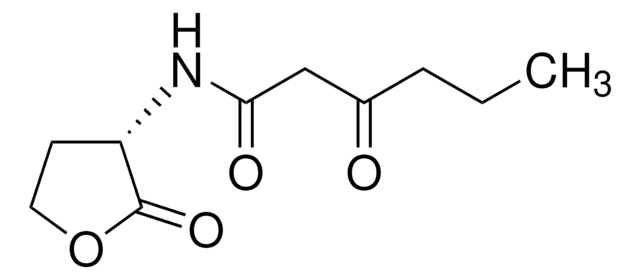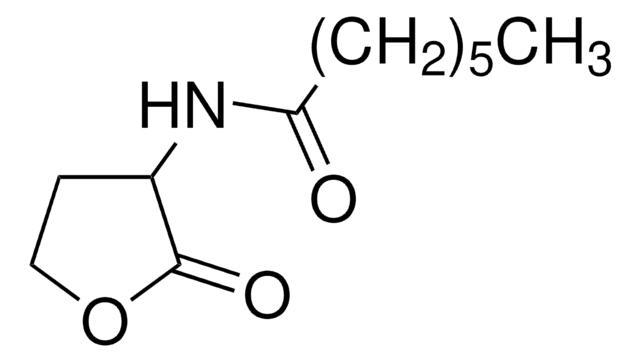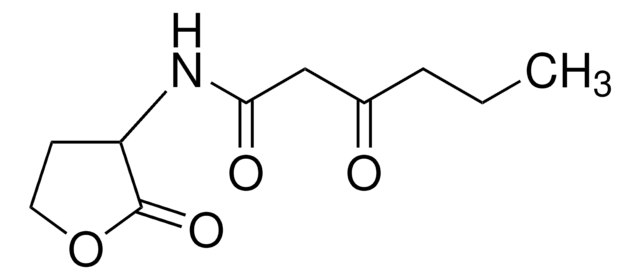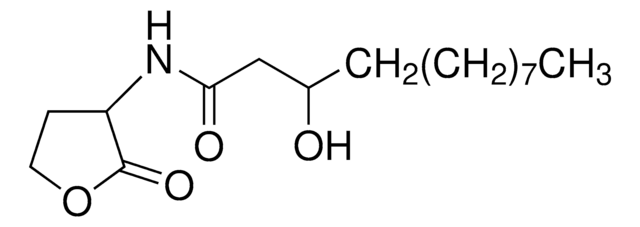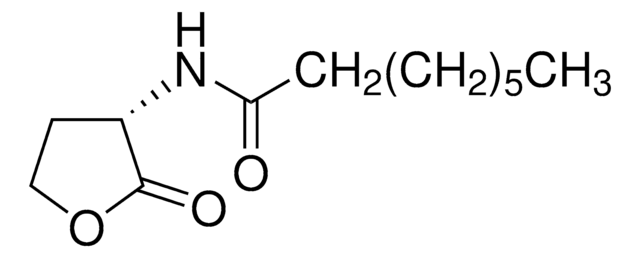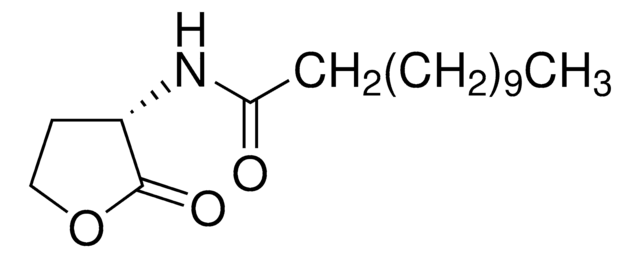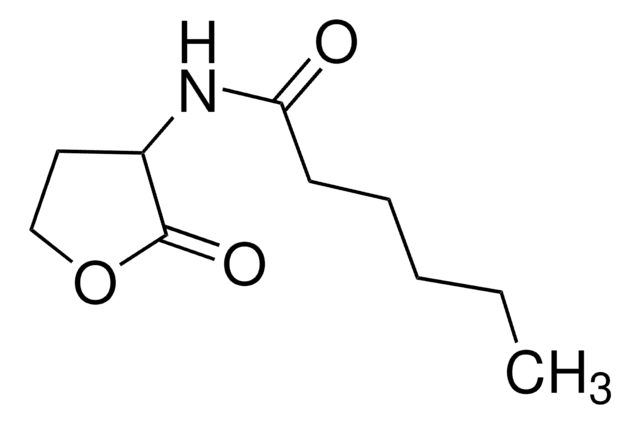O9264
N-(3-Oxotetradecanoyl)-L-homoserine lactone
≥98% (TLC)
About This Item
product name
N-(3-Oxotetradecanoyl)-L-homoserine lactone,
Assay
≥98% (TLC)
form
powder
color
white
application(s)
cell analysis
shipped in
wet ice
storage temp.
−20°C
SMILES string
CCCCCCCCCCCC(=O)CC(=O)N[C@H]1CCOC1=O
InChI
1S/C18H31NO4/c1-2-3-4-5-6-7-8-9-10-11-15(20)14-17(21)19-16-12-13-23-18(16)22/h16H,2-14H2,1H3,(H,19,21)/t16-/m0/s1
InChI key
YQFJJDSGBAAUPW-INIZCTEOSA-N
Application
Biochem/physiol Actions
Storage Class Code
11 - Combustible Solids
WGK
WGK 3
Flash Point(F)
Not applicable
Flash Point(C)
Not applicable
Personal Protective Equipment
Certificates of Analysis (COA)
Search for Certificates of Analysis (COA) by entering the products Lot/Batch Number. Lot and Batch Numbers can be found on a product’s label following the words ‘Lot’ or ‘Batch’.
Already Own This Product?
Find documentation for the products that you have recently purchased in the Document Library.
Customers Also Viewed
Our team of scientists has experience in all areas of research including Life Science, Material Science, Chemical Synthesis, Chromatography, Analytical and many others.
Contact Technical Service
